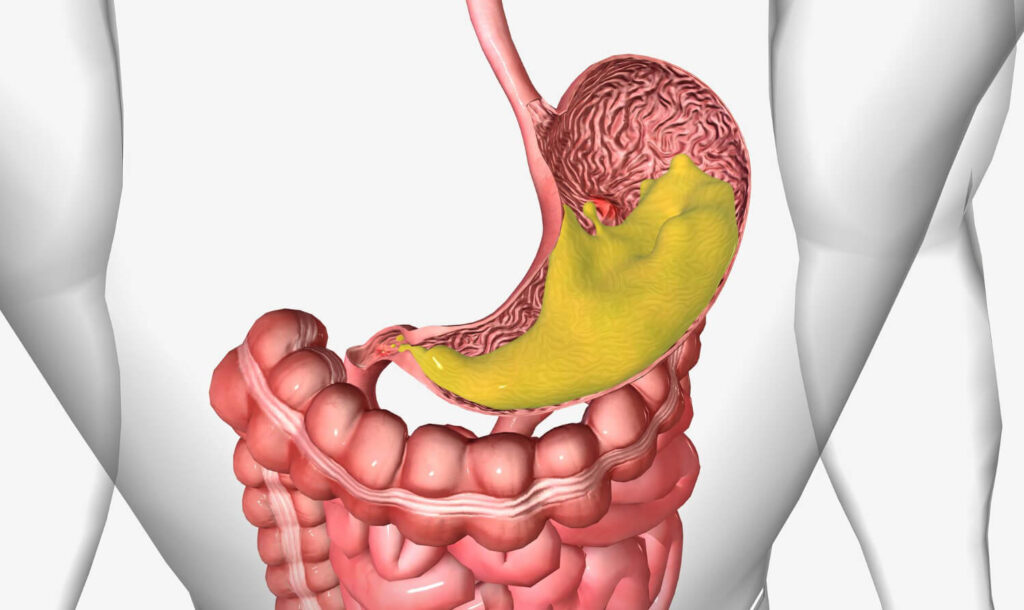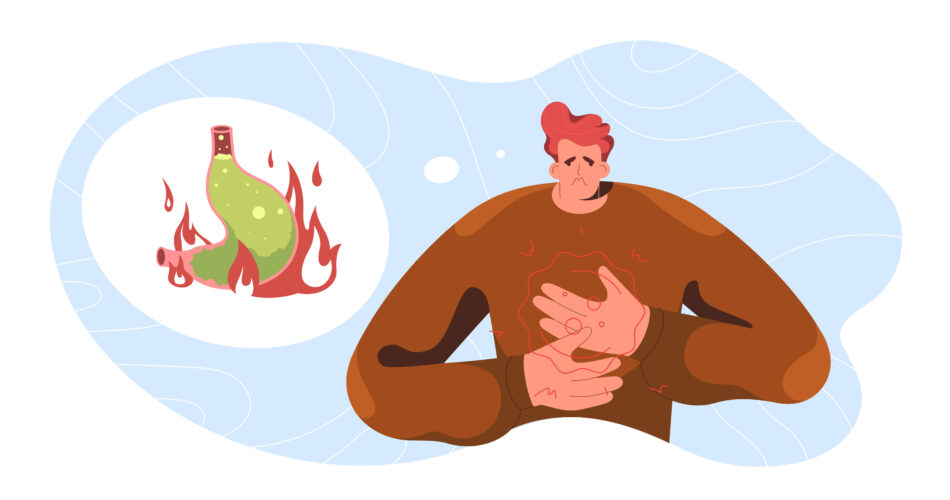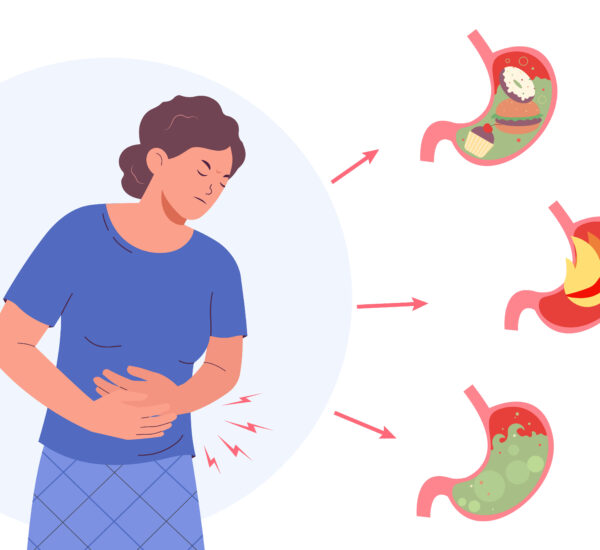Most patients today are suffering from conditions related to gastroenterology. Cases involve symptoms like heartburn and a sour taste in the mouth, which are the primary signs of gastroesophageal reflux disease or GERD. If you are one of those patients who developed this condition, you might wonder how to manage it better. In this article, we’ll tackle the best approaches to promote better digestive health. Let’s begin!
What is Gastroesophageal Reflux Disease (GERD)?

Gastroesophageal reflux disease (GERD) is a chronic condition characterized by the frequent backward flow of stomach acid into the esophagus. Most people recognize this illness as acid reflux. It occurs when the lower esophageal sphincter, a ring of muscle between the esophagus and the stomach, fails to close properly. The acidic contents from the stomach irritate the lining of the esophagus, leading to symptoms.
This condition is known to target specific types of people. In some cases, experts have identified that most people with obesity commonly experience gastroesophageal reflux disease. When an individual is obese, the body weight adds pressure to the stomach, which triggers acids. At the same time, individuals who sleep right away after eating have a greater tendency to develop abnormalities like GERD. It causes indigestion as the stomach acid rises.
High-risk Individuals to Develop GERD
- people who smoke
- pregnant individuals
- patients taking asthma medications, antihistamines, etc.
In short, gastroesophageal reflux disease is a type of condition that can happen at any age and gender. Lifestyle choices can significantly affect one’s digestive health and make people prone to developing GERD.
Symptoms and Diagnosis of GERD

When identifying whether or not you have GERD, symptoms can provide a reliable clue about your condition. These symptoms are used by doctors to diagnose patients accurately. That’s why it is vital to understand these warning signs.
Take note that the symptoms of GERD can vary from person to person, but common manifestations include the following:
- heartburn or chest pain
- nausea
- chronic cough
- regurgitation
- difficulty swallowing
- bad breath
Diagnostic Tests for Gastroesophageal Reflux Disease
Diagnosing gastroesophageal reflux disease involves a detailed medical history, physical examination, and possibly additional tests such as an esophageal manometry, upper endoscopy, abdominal ultrasound, etc. These procedures can help evaluate the severity of the condition, identify potential complications, and guide treatment decisions.
What are the Complications of GERD or Acid Reflux?

Esophagitis
While GERD itself may not be life-threatening, it can lead to complications if left untreated. Chronic inflammation of the esophagus, known as esophagitis, can occur. Esophagitis is a condition that people develop due to various substances rising and coming in contact with the esophageal mucosa. These substances are gastric acid, bile salts, pepsin, etc. If it continues to happen, a possibility of developing a precancerous condition like Barrett’s esophagus is the result.
Esophageal Stricture
Meanwhile, this condition is another possible complication that can arise. This condition is caused by stomach acid. This substance affects the esophagus, leading to the narrowing of the esophagus, visible scar tissues, and neoplasia or abnormal growth of tissues. Once it occurs, the digestive process can be compromised as food and water can’t pass through. In short, a feeling of constriction and hard swallowing can occur.
Esophageal Cancer
Another health complication from an untreated gastroesophageal reflux disease is adenocarcinoma or esophageal cancer. This type of cancer affects the lower end of the esophagus resulting in difficulty in swallowing. It is a severe type of complication that should be managed immediately, and one way to do that is by being aware of the severe symptoms of esophageal cancer. These signs of esophageal cancer can involve continuous heartburn, persistent acid reflux, regurgitation, as well as esophageal tumor.
Dental and Oral Problems
Furthermore, another health threat due to gastroesophageal reflux disease is dental issues. With this condition involving acid reflux, the side effects of this scenario can erode the tooth enamel. Because of that, the tendency to get cavities is higher than usual. Aside from that, the rising of stomach acid can result in bad breath.
Conventional Treatments for GERD

Over-the-Counter Medications
Over-the-counter medications like antacids can often provide relief. Antacids, such as calcium carbonate, help neutralize stomach acid and provide short-term relief. These medications work by chemically reacting with the acid in the stomach, reducing its acidity and alleviating symptoms such as heartburn and acid reflux. It’s important to note that antacids only provide temporary relief and do not address the underlying cause of GERD.
In addition to antacids, H2 receptor blockers like ranitidine or famotidine, work by reducing the production of stomach acid. These medications can help alleviate symptoms and promote healing of the esophagus. However, it’s important to use these medications as directed and consult a healthcare professional if symptoms persist or worsen.
Prescription Medications
Meanwhile, prescribed medications are another option, which best suits your current condition. As specified by the doctor, it is vital to follow the number of doses, how often to intake them, and other instructions. Most likely, the doctors will provide stronger medicines to prevent the production of acids and manage gastroesophageal reflux disease.
These medications include higher-dose PPIs, which are more potent medications that decrease acid production. PPIs can provide significant relief for individuals with severe or persistent GERD symptoms. It’s important to note that PPIs should be used under the supervision of a healthcare professional and periodically re-evaluated for continued need.
In addition to PPIs, prokinetic agents, such as metoclopramide, help improve gastric motility. It can reduce the frequency of acid reflux episodes. This medication works by increasing the contractions of the muscles in the gastrointestinal tract, facilitating the movement of food and acid through the digestive system.
Surgical Interventions
Another medical solution for managing gastroesophageal reflux is surgery. This option is considered if the medications and other interventional strategies fail. That means a more invasive approach is a must, which surgical interventions can offer.
One commonly performed procedure is laparoscopic nissen fundoplication, which involves wrapping the upper part of the stomach around the lower esophagus to strengthen the lower esophageal sphincter. This surgical intervention aims to restore the natural barrier between the stomach and the esophagus, preventing the reflux of stomach acid. Laparoscopic fundoplication is a minimally invasive procedure that offers a shorter recovery time compared to traditional open surgery.
Read related article to know more about natural treatments for GERD
Lifestyle Changes to Manage GERD
Dietary Modifications
An important aspect of managing GERD is making dietary changes. Avoiding trigger foods, such as citrus fruits, fatty foods, caffeine, alcohol, and spicy foods, can help minimize acid reflux. These trigger foods can irritate the esophagus and increase the production of stomach acid, leading to uncomfortable symptoms. By eliminating or reducing the consumption of these foods, individuals can experience significant relief from GERD symptoms.
Furthermore, eating smaller, more frequent meals can be beneficial for GERD management. This approach allows the stomach to digest food more efficiently, reducing the likelihood of acid reflux. It is also advisable to avoid eating close to bedtime, as lying down with a full stomach can increase the risk of acid reflux. By implementing these dietary modifications, individuals can take control of their GERD symptoms and improve their overall quality of life.
Exercise and Weight Loss Management
Regular physical activity has multiple benefits for individuals with GERD. Engaging in moderate-intensity exercise, such as brisk walking, can aid digestion, support weight management, and reduce stress, all of which contribute to better GERD management. Exercise helps stimulate the muscles in the digestive system, promoting proper digestion and reducing the likelihood of acid reflux.
However, it’s important to avoid high-impact exercises or intense physical activity immediately after eating, as this can exacerbate symptoms. It is recommended to wait at least two hours after a meal before engaging in vigorous exercise. Working with a healthcare professional or a certified exercise specialist can help create an exercise plan tailored to individual needs, ensuring that individuals with GERD can safely incorporate physical activity into their daily routines.
Sleep and Stress Management
Establishing healthy sleep habits is crucial for individuals with GERD. Elevating the head of the bed by using a wedge or extra pillows can help prevent acid reflux during sleep. This elevation helps keep the stomach acid from flowing back into the esophagus, reducing the occurrence of nighttime symptoms. Additionally, it’s important to avoid eating large meals or heavy snacks close to bedtime, as this can trigger symptoms.
Moreover, minimizing stress through relaxation techniques such as deep breathing, meditation, or engaging in hobbies can have a positive impact on GERD symptoms. Stress can worsen GERD symptoms by increasing stomach acid production and affecting the function of the digestive system. Identifying and addressing sources of stress in one’s life can significantly improve overall well-being and contribute to better GERD management.
By implementing these lifestyle changes, individuals can take proactive steps toward managing their GERD symptoms. While medication may be necessary in some cases, these non-pharmacological approaches can complement medical treatment and provide long-term relief. It is important to consult with a healthcare professional to develop a comprehensive management plan that suits individual needs and ensures the best possible outcomes.
When to Visit A Gastroenterologist for GERD
GERD isn’t only about acid reflux and its effect on your body. It is also a message from your body about a possible health complication. That’s why if you notice a severe GERD occurrence, it’s best to consult with a gastroenterologist immediately.
How to Book A Gastroenterologist Consultation in the Philippines
There are simple ways available that can help you meet with the right doctor. One of them is using a healthcare app to book a consultation, like NowServing. NowServing is a Philippine healthcare app used by millions of Filipinos to get their needed healthcare service (online consultation, buying prescribed medications, getting medical certificate, request diagnostic tests, and more.)
Here’s how you can book a consultation with a gastroenterology doctor near you:
- Access this link to view the list of gastroenterology doctors in the Philippines.
- Choose your doctor by tapping the “Book Appointment” button.
- You can also view your doctor’s details to help you decide on which health expert to choose.
- Fill up the form provided to continue the booking process
- Wait for the confirmation of your booking.
- Meet with your doctor based on your identified consultation schedule.
Aside from this option, you can also download the NowServing app to book a consultation. Use this link to download the app now!
FAQs About Gastroesophageal Reflux Disease and its Treatment
Are there approved alternative options as treatment of GERD?
Yes, certain herbs, such as chamomile, ginger, and licorice, have been traditionally used for their potential in reducing acid reflux. Chamomile is known for its soothing properties, which is beneficial for the digestive system. On the other hand, ginger has anti-inflammatory effects that can help reduce inflammation in the esophagus. Lastly, licorice has natural coating properties that can provide a protective barrier against stomach acid.
However, it’s important to note that scientific evidence supporting the effectiveness of these remedies is limited, and not all supplements are safe or suitable for everyone. Consulting a healthcare professional is advisable to better manage GERD.
When to consider GERD surgery in the Philippines as treatment?
As mentioned, surgical treatments for GERD is considered a last resort when all initial forms of treatment fail. If your doctor recommends surgical intervention, it’s best to proceed with this option and not prolong your chance. Doing so can help you manage the severe symptoms and complications immediately.
How much is the gastroenterology consultation fee on NowServing?
The consultation fee usually starts at PHP 500.00. Although, it can still depend on the rate of your doctor as some can request additional payment. It’s best to check your options before booking a doctor to avoid financial problems.
Conclusion
There are several methods on how to properly manage gastroesophageal reflux disease. Throughout your healing journey, you can utilize both medical and alternative methods to achieve better digestive health. That’s why your overall health now relies on your choices in lifestyle, diet, and willingness to seek guidance from a doctor.
Remember that GERD can lead to mild and severe consequences. It’s best to prioritize seeking proactive measures to prevent these situations from occurring. Book an online consultation with a gastroenterologist today!
GERD Knowledge Quiz
Test your understanding of Gastroesophageal Reflux Disease


